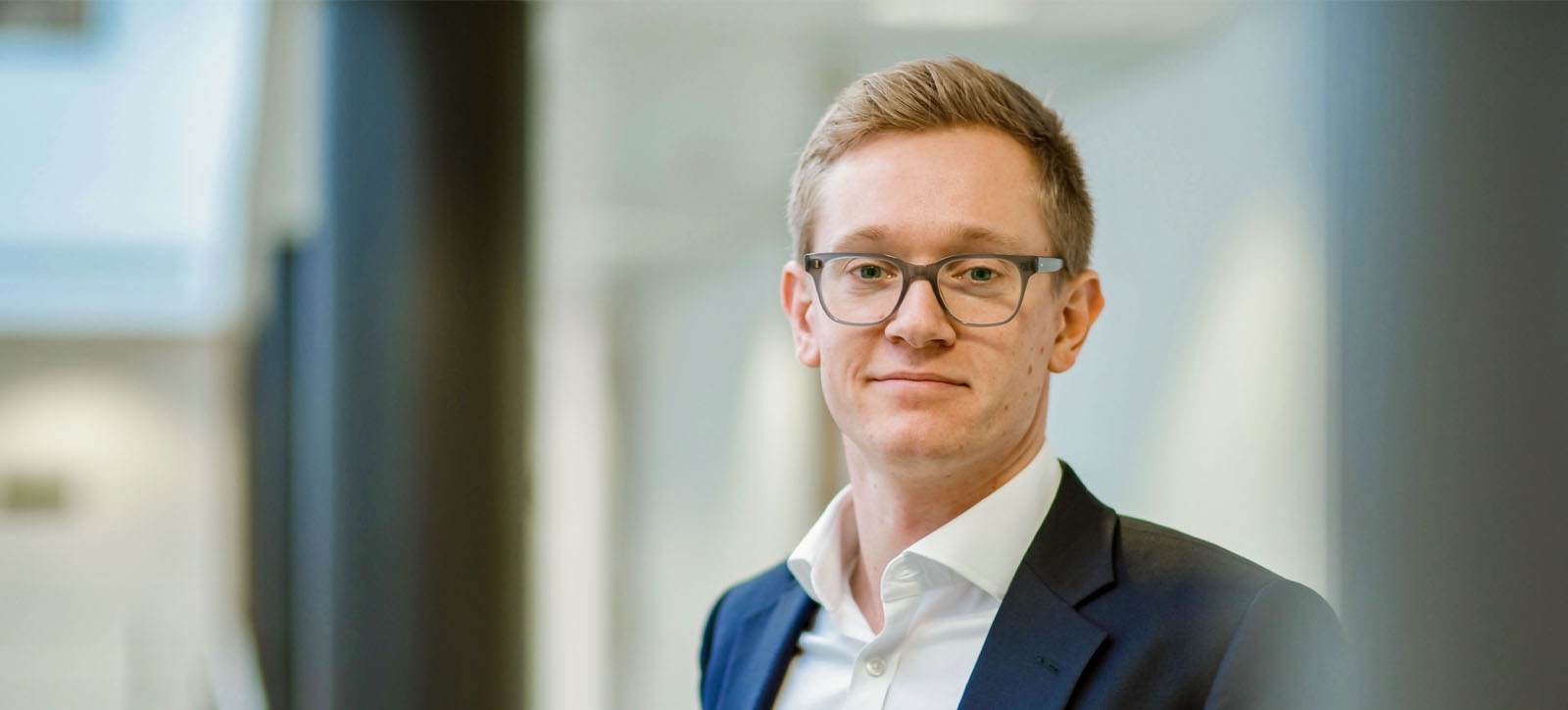
Joe Northwood: Warwick Business School aligned with his values and the impact he wanted to make
The next few years are going to be busy for Joe Northwood.
Now 32, he is part of the leadership team at National Grid driving forward a vast and ambitious overhaul of national energy infrastructure and is happiest beyond the edge of his own comfort zone.
“What drives me is being able to make a difference within energy, which as a sector has been driven by complexity and by how it’s always been done,” says Joe. “I want to show how it can be different by bringing in a new perspective, new technologies and a new approach.”
As part of the new UK Government’s targets to decarbonise electricity supply by 2030, Joe is planning a revamp of National Grid’s transmission systems to quadruple the amount of offshore wind that can be connected in the next six years and to “ensure infrastructure is secure and resilient to the challenges of the future as well as those of today”.
This is a critical step on the UK’s journey to achieving net zero, says Joe, who is accountable for network development in England and Wales.
This requires new ways of working with suppliers to provide thousands of miles of new cabling and infrastructure, as well as renewed efforts to squeeze more out of existing power lines and assets.
An electrical and electronic engineering graduate from the University of Manchester, he cut his managerial teeth on an award-winning student project – a new medical device to combat obesity in the form of an electronic pill.
“I was driven by a deep curiosity about how things work,” says Joe. ”I had to look at powering this autonomous device wirelessly within the stomach – which was fascinating.”
His interest in large scale power systems drew him to intern every summer at National Grid, and he went on to join their graduate scheme.
Shortly after, Joe was asked to create a business plan to install new high voltage charging facilities for electric vehicles across the country. Managers liked it so much they asked him to build a team and carry it out.
Joe says: “We were really pushing the edge of what the network could do to bring in transport decarbonisation.”
How the Executive MBA can deliver results
A subsequent stint in corporate strategy opened his eyes to the wider business culture beyond engineering, and so Joe sought more tools for his armoury.
“I was a bit disruptive, a bit younger,” says Joe. “I needed to learn a bit more of the language of the environment I was operating in.”
In 2018 he began an Executive MBA at Warwick Business School. “It taught me about the breadth and skills of the business world.”
WBS, with its Wawick campus in the Midlands and WBS London at The Shard, suited him geographically - and crucially was a good cultural fit.
“I could have gone to an established institution with a regimented approach,” says Joe. “But Warwick was a relatively young, highly ambitious and fiercely competitive business school with a track record of delivering results.
“It aligned with my values, the impact I wanted to make. The toolkit I needed was perfectly matched with what WBS was setting out to do. The course was pretty intense.”
Coffee chats, and an enduring network of what Joe calls the “mix of bright minds and disruptors at the top” were as valuable as the classes he took.
He is still in touch with his cohort – among them leaders in defence, disruptors in the drinks sector and future leaders within healthcare and medicine. “It’s a network I can tap into at any time, and it’s immensely valuable.”
As a young leader, he’ll seek out the advice of industry experts, and is generous with his own time. A volunteer on the Teach First programme which fast-tracks promising young teachers, he’s also co-led industry efforts to develop future leaders within the energy sector. “I’m passionate about career development for others.”
If he relaxes, it’s through several start-up advisory roles, including his own co-founded start-up looking at controlled environment agriculture and vertical farming.
“I don’t switch off by doing nothing,” he says. “I prefer to think about different sectors and how to change them or work alongside different people. I play the piano and cycle to unwind.”
But his day job remains his inspiration. “Ultimately, energy is a right that everyone should have access to. I want to apply my skills to make a difference and show how we can change. If I find myself uncomfortable, it’s because I’m doing something right.”
Find out more about Warwick Business School's Change Makers.




 X
X Facebook
Facebook LinkedIn
LinkedIn YouTube
YouTube Instagram
Instagram Tiktok
Tiktok